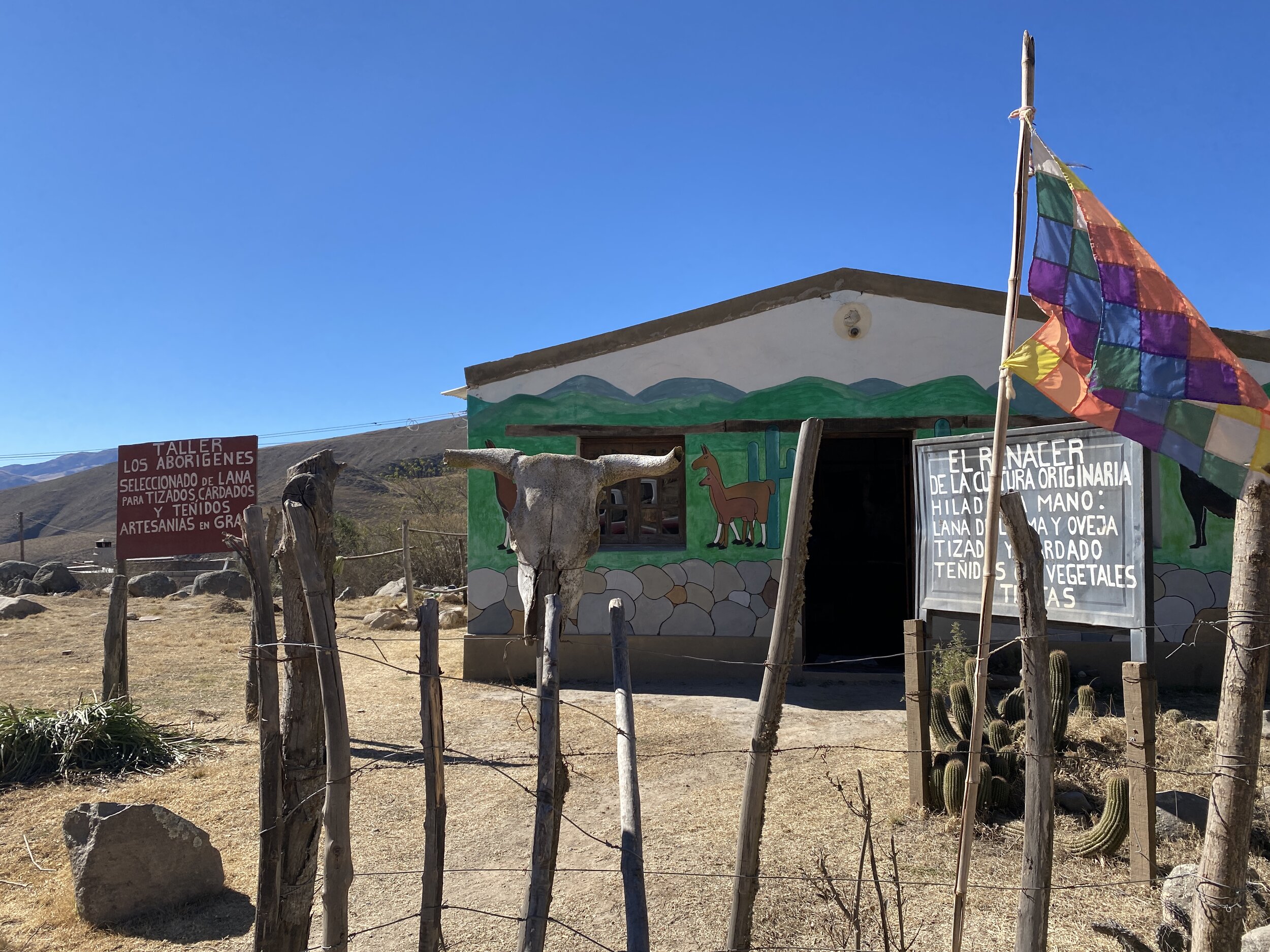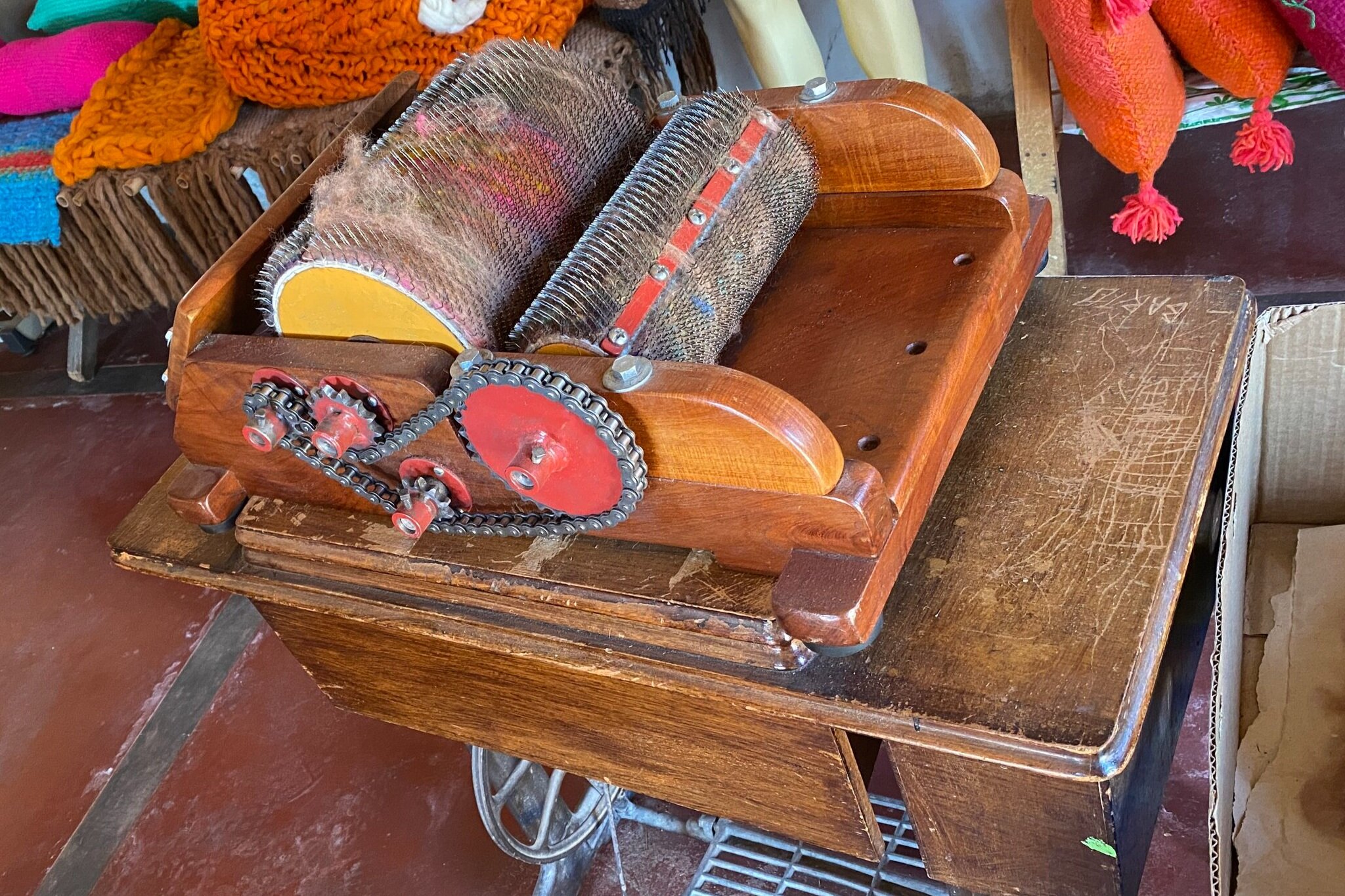Artisan's route
More than shopping, a journey Traveling along the routes of the province of Tucumán makes it necessary to make some entertaining stops to appreciate the ancestral techniques that its artisans inherit and transmit, as well as the result of that work.
The stops -not always well signposted- are an invitation to enter the homes of the local producers, and even watch them work with the noble materials, be it clay for ceramics, wool for weaving or leather for mats.
A manual and silent work in each workshop house is always appreciated by @tripticity_, that's why the visit is accompanied by a purchase -even a small one- of valuable handicrafts, as an attempt to honor this task.
Very close to Estancia Las Carreras, Rogelio Romano opens his workshop to anyone who visits him to show his handloom work. He works with wool from Santa María, Catamarca. His former partner, Norma, continues to help him, either by selling her products or -even- by knitting as well. So @tripticity_ didn't hesitate to sit behind the loom and try a warp.
Jacinta Romano, her niece, has her workshop right next door. With much encouragement she told how she always offers the "barracán" as it is her favorite, that of squares of horizontal and vertical stripes that form a board, thick, of great density.
Also in Las Carreras is the workshop of Manuel Cancino, who works with wood to create rustic furniture with leather matting. Rosa -his wife- was the one who came out to attend to the visitor, while the serious and sullen Manuel looked sideways, almost with distrust. She related the tradition in the manufacture of rural furniture.
On the way to Tafí del Valle, Bartolina Casimiro's store, from the Diaguita community, offers original wool garments. It also has a machine that allows the carding of the wool, separating the good from the lumpy for the yarns or removing the bits of grass with which they arrive.
Flea Market is the small market of the boutique hotel Castillo de Piedra, in the town of Tafí del Valle. It is a must, both for a snack and to buy some high-design object.
The delicatessen store Sumaj Bombonería, which means "rich thing" in Quechua, deserves another stop, for the variety of chocolates, handmade sweets, local charcuterie and wines it offers.
Finca los Sueños, also on the main street of the town, offers tasty cheeses and cold cuts.
Then simply strolling along the shopping promenade through downtown Tafi is an invitation to discover objects superimposed, as in any popular fair, somewhat disorderly.
Tiempo de Flores is a store with contemporary and author options, interior design and high-end lighting, highly recommended, as is the Cooperativa de la Ruta del Tejido, which abounds with attractive creations of a more rustic but no less elegant profile.
Then, continuing the tour, on provincial route 307 on the way to Abra del Infiernillo, a stop in La Quebradita to buy alfajores and sweets of own production.
Continuing on, in the small town of Ampimpa, another textile artisan is on the way. It is the workshop of Hugo Astorga, whose works stand out for their multicolored workmanship.
In Paraje El Tío, near Amaicha del Valle, Alejandra Salazar also works to order on the loom, spinning ruanas, ponchos and pashminas according to the customer's request. Third generation of weavers, under her carob tree she tells her life stories while working with the wool she buys from shepherds in Abra del Infiernillo.
On the other hand, Los Amaichas Winery offers community wine in its two variants: Criollo (from local grapes of ancestral times) and Malbec (from plants brought from the Province of Mendoza). This is a winemaking project that integrates the work of families in the area to achieve a red wine that is the result of communion and shared effort.
Right next to the gas station, at the access to the town, a multipurpose shop offers handicrafts, copper pots, iron pots, ceramic vessels and baskets in symbol with very good variety and prices.
On the outskirts, to the southwest, the cheerful Ángela Balderrama stands out for her woven curtains, also made upon request, while her husband Jorge Sigal produces jewelry with stones from the area. A few meters away, Aldo Fabián bakes his ceramic pots and plates, with the experience acquired at the Museo de la Pachamama under the guidance of his alma mater, Héctor Cruz, the brilliant artist from a tiny hamlet in Salta called Jasimaná.
Before leaving Tucumán, a visit to the museum is a must, as well as to his shop, where Cruz himself offers his tapestries and other creations.
































